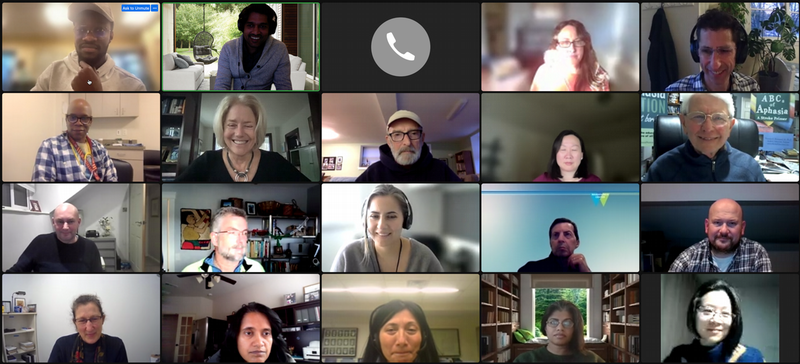Building Relationships Between Health Systems and Communities for Equitable Outcomes

How can health systems and community organizations build relational coordination to achieve more equitable outcomes? What role can community health workers play?
Community health workers (CHWs) are defined by the American Public Health Association as liaisons between the community and health systems (APHA, 2023), serving in effect as boundary spanners to build relationships between health systems and communities that are divided by significant power differentials (e.g. Franz et al, 2019; Taylor & Byhoff, 2021). CHWs work with clients and with fellow professionals in health systems and community-based organizations to address underlying causes of poor health such as systemic racism and violence (APHA, 2023) by spanning the social identity and power differentials between the two sectors (Franz et al, 2019; Rabbani, 2019). Given the challenges of the CHW role, it is not surprising that some studies have shown that CHW programs positively impact outcomes (ASTHO, 2023), while other studies have shown little or no impact (Truchil et al, 2013).
The goal of the proposed study is to assess how to strengthen CHWs’ role as boundary spanners between health systems and communities. We propose to test two interventions that are expected to increase CHW ability to play the boundary spanner role. The first intervention is empowerment training, which provides CHWs with new skills to build power in communities and to work more effectively across power differentials between health systems and communities (Rabbani, 2019; 2020). The second intervention provides CHWs with the skills to assess and build relational coordination and readiness between health systems and communities to achieve more equitable outcomes for the populations they serve (Hajjar et al, 2020).
Join us to explore interventions to address the social determinants of health by strengthening relational coordination across sectors that currently lack shared goals, shared knowledge and mutual respect.
Become a member to join us for this cafe and more.
References
American Public Health Association (2023a). Community health workers section.
American Public Health Association (2023b). A strategy to address racism and violence as public health priorities: Community health workers advancing equity and violence prevention. Policy Statement 20227.
Association of State and Territorial Health Officials (2023). Community health workers: Evidence of their effectiveness.
Bolton, R., Logan, C., & Gittell, J. H. (2021). Revisiting relational coordination: A systematic review. The Journal of Applied Behavioral Science, 57(3), 290-322.
Burns, L. R., Nembhard, I. M., & Shortell, S. M. (2021). Integrating network theory into study of integrated healthcare. Social Science & Medicine, 114664.
Franz, B., Skinner, D., Wynn, J., & Kelleher, K. (2019). Urban hospitals as anchor institutions: Frameworks for medical sociology. Socius, 5, 2378023118817981.
Hajjar, L., Cook, B. S., Domlyn, A., Ray, K. A., Laird, D., & Wandersman, A. (2020). Readiness and relationships are crucial for coalitions and collaboratives: Concepts and evaluation tools. New Directions for Evaluation, (165), 103-122.
Rabbani, R. (2019). Moving away From “utilizing” community health workers toward empowering models for integration and supervision within care settings. APHA's 2019 Annual Meeting and Expo (Nov. 2- 6).
Rabbani, R (2020). Rabbani champions role of community health workers in search for health equity solutions. University of North Carolina School of Public Health.
Taylor, L. A., & Byhoff, E. (2021). Money moves the mare: The response of community‐based organizations to health care's embrace of social determinants. The Milbank Quarterly, 99(1), 171-208.
Truchil, A., Dravid, N., Singer, S., Martinez, Z., Kuruna, T., & Waulters, S. (2018). Lessons from the Camden Coalition of healthcare providers' first Medicaid shared savings performance evaluation. Population Health Management, 21(4), 278-284.
